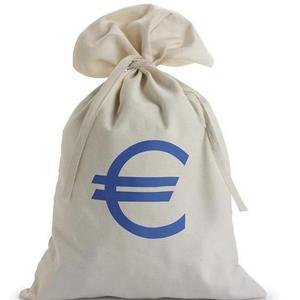More stable EU biodiesel policy helps Avril Group recover

June 4, 2019
BY Avril Group
After two years marked by a contrasted economic situation in all its business lines and a context that remained difficult at the start of 2018, the Avril Group recorded a notable recovery in its activities during the second half of the year.
By Dec. 31, the Group had achieved an EBITDA of €154 million (up 26 percent) and saw its historical activities—those of oilseed grain processing and biodiesel production by its subsidiary Saipol—improve its performance, notably under the effect of a more stable future for biofuels between now and 2030.
Indeed, in December 2018, the new European Renewable Energy Directive (REDII) confirmed improved regulatory visibility by maintaining the level of incorporation of first-generation biofuels at 7 percent and introducing restrictions on the highest emitting biofuels. On Jan. 30, the European Union also announced it was in favor of a compromise to limit unfair competition from Argentine soybean biodiesel, by fixing a quota and a minimum price below which antisubsidy duties would be imposed.
In November, this activity launched an innovation called Oleo100, identifying the first 100 percent rapeseed, renewable and traceable biofuel produced by French agriculture. Intended for use by haulage contractors and local government bodies (captive fleets), this new fuel can simply and entirely replace fossil diesel, with equivalent performance and cost.
Advertisement
After a difficult year for Lesieur in France, Oils & Condiments intends to benefit in 2019 from the repositioning of its Puget and ISIO4 brands and the launch in French retail outlets of the Italian olive oil brand Costa d’Oro, acquired by the Group in May 2018; as a result, Avril now ranks third in the global market for branded olive oils.
In its specialty activities, a downturn in oleochemicals—impacted at the end of the year by the economic slowdown in Europe—was offset by Oleon’s positioning in specialty products with high added value and the international dynamism of animal specialties.
Animal nutrition and products activities, now combined in Avril’s Livestock Sectors Business Line, saw a favorable end to 2018, driven by the performance of the pork branch. Following its ongoing transition towards alternative eggs, Matines should see a return to growth and profitability in 2020.
All these activities nevertheless remain subject to the external risks inherent in agriculture and livestock farming, which are still experiencing difficulties.
Sofiprotéol, Avril’s finance and development arm, increased its capacities to invest in companies in the French agricultural and agrifood sectors following a €100 million increase in capital finalized at the end of 2017.
Advertisement
Finally, the incubator for rapidly growing companies, Avril Development, confirmed its successful model with some promising results. Thus since February, Terrial has presented a joint enterprise project operated by Avril and Suez that intends to become a leader in France for organic fertilizers and soil conditioners. In addition, in November, Avril announced the sale of its company Sopral, specialist in nutrition for dogs, cats and horses, but retained a minority stake through Sofiprotéol.
“2018 was clearly a year of two halves,” said Jean-Philippe Puig, CEO of the Avril Group. “During the first six months, the group had to deal with an unfavorable economic context and focused on its costs by ensuring rigor throughout its operations. The second half ended more satisfactorily, notably under the effect of decisions that clarified the horizon with respect to strategic regulatory issues, such as the future for biodiesel in Europe. This context has restored a positive dynamic, although we still need to remain cautious and improve the economic balance of our historical activity, which is yet to be reached.”
With total equity worth €1.8 billion as of Dec. 31, the solidity of the group’s financial structure constitutes an advantage for implementation of its strategic plan “Avril 2023.” This aims to foster innovation and accelerate the group’s growth in France and internationally through the development of specialty products, while reducing its exposure to market fluctuations and pursuing the work on transformation initiated in recent years.
“Despite marked differences in the contexts of different sectors, 2018 fully validated Avril’s transformation strategy—firstly to open up new opportunities in growth markets thanks to innovation and internationalization, and secondly to improve our competitiveness and flexibility by consolidating our operational excellence,” said Aymeric Mongeaud, group director of administrative and financial affairs. “In 2019, the group will be focusing on pursuing the commitments made in the context of its Avril 2023 plan and consolidating its financial performance.”
Related Stories
The U.S. Energy Information Administration maintained its forecast for 2025 and 2026 biodiesel, renewable diesel and sustainable aviation fuel (SAF) production in its latest Short-Term Energy Outlook, released July 8.
XCF Global Inc. on July 10 shared its strategic plan to invest close to $1 billion in developing a network of SAF production facilities, expanding its U.S. footprint, and advancing its international growth strategy.
U.S. fuel ethanol capacity fell slightly in April, while biodiesel and renewable diesel capacity held steady, according to data released by the U.S. EIA on June 30. Feedstock consumption was down when compared to the previous month.
XCF Global Inc. on July 8 provided a production update on its flagship New Rise Reno facility, underscoring that the plant has successfully produced SAF, renewable diesel, and renewable naphtha during its initial ramp-up.
The U.S. EPA on July 8 hosted virtual public hearing to gather input on the agency’s recently released proposed rule to set 2026 and 2027 RFS RVOs. Members of the biofuel industry were among those to offer testimony during the event.
Upcoming Events










